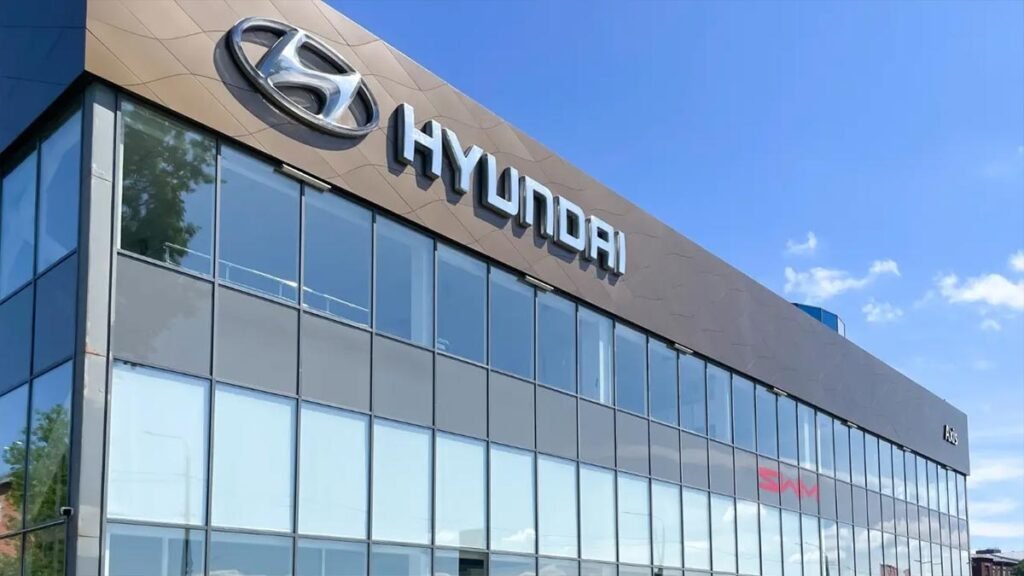Korean automaker faces tariff disadvantage as Japanese rivals secure lower rates amid stalled Korea–U.S. negotiations
Trade talks between South Korea and the United States have stalled, leaving Hyundai Motor Company exposed to higher tariffs just as its hybrid sales in the U.S. are gaining momentum. Beginning September 16, 2025, Japanese automakers will enjoy a reduced 15% U.S. tariff on car imports, down from the previous 27.5%, while tariffs on Korean vehicles remain stuck at 25% until an agreement is finalized.
Tariff Gap Creates Uneven Playing Field
The tariff change gives Toyota and other Japanese brands a competitive advantage in the U.S. market. South Korea had reached a preliminary deal in July to secure the same 15% rate, but implementation has been delayed due to unresolved follow-up negotiations. Until then, Korean cars remain at the higher 25% rate.
According to Korea JoongAng Daily, Hyundai sold 112,800 hybrid vehicles in the U.S. through August 2025, with two-thirds imported directly from Korea. This reliance on imports leaves the company particularly vulnerable to tariff pressure.
Hyundai’s Hybrid Momentum at Stake
Hyundai Motor Group (including Kia) has been one of the fastest-growing players in the U.S. hybrid market. Industry data shows the group’s global hybrid sales rose 42% year-on-year in the first half of 2025, reaching about 1.01 million units.
In the U.S., Hyundai and Kia together sold around 165,000 hybrids in the first seven months of 2025, up sharply from the same period last year. Strong demand for models like the Tucson Hybrid and Elantra Hybrid has boosted Hyundai’s electrified lineup.
Hyundai Motor America also reported record-breaking summer sales, with July 2025 sales rising 15% year-on-year and electrified vehicle sales jumping 50%.
Negotiation Deadlock
U.S. Commerce Secretary Howard Lutnick said on September 11 that Korea must either accept the current U.S. terms or continue paying the higher tariff.
South Korean President Lee Jae-myung responded a day later, urging negotiators to “aim for a reasonable agreement,” signaling that tariffs are unlikely to fall immediately.
Strategic Response
Hyundai is preparing several measures to offset the tariff burden:
- Expanding U.S. production: The company’s new Georgia Metaplant, with annual capacity of 500,000 units, is expected to play a key role in future hybrid manufacturing.
- Diversifying hybrid lineup: Hyundai plans to roll out hybrid options across more U.S. models by 2026.
- Stockpiling imports: Ahead of potential cost increases, Hyundai has already increased shipments to maintain inventory for at least three months.
Competitive Landscape
Toyota still dominates the U.S. hybrid segment with more than 50% market share, leaving Hyundai in a catch-up position. The tariff disadvantage could widen this gap, especially as larger SUVs like the Palisade and Telluride — where Hyundai expects strong hybrid demand — face higher import costs.
Despite these risks, Hyundai’s Q2 2025 results showed record hybrid sales globally, up 38.5% year-on-year, highlighting strong consumer demand even under tariff pressure.
Conclusion
Delays in Korea–U.S. trade talks have created a tariff gap that threatens Hyundai’s progress in the U.S. hybrid market. Unless negotiations move forward soon, Japanese automakers may strengthen their lead, while Hyundai faces mounting pressure to accelerate U.S. production and localize its hybrid strategy.

